Journalism that relies on facts, not bias
In a world that has become about as polarized and biased as ever, it can be extremely difficult to find unbiased news sources.
Especially in the United States, those on the liberal “left” believe right-wing news sources like Fox News are terribly biased. Those on the conservative “right” are convinced liberal media sources distribute nothing but “fake news”.
So who’s right? Which media sources are free from government or corporate censorship and actually report the facts?

Unbiased News Sources: Be Careful Who You Ask
Because of how polarized the country is, you’ll be lucky if you can find two people who agree on which news sources are the most unbiased. The reality is that there really is no such thing. There are only varying degrees of bias.
One of the best ways to determine lack of bias is by surveying the audience itself. In fact Gallup and the Knight Foundation did just that in 2017, surveying 1,440 Gallup panel members.
What’s astonishing is that the publications listed as some of the most biased by conservatives and the least biased by liberals included The Washington Post and The New York Times. Yet those were two at the top of the list of the least biased news sources published by author Paul Glader at Forbes.

This reveals that either Forbes, or Paul Glader himself, has significant liberal bias leanings himself. If you check who conservative writers say are the most unbiased publications, you’ll find the opposite to be true.
So who’s right? How can you choose the most unbiased news sources when even those promoting allegedly “unbiased” sources are likely biased themselves?
Again, the check with the audience.
Unbiased News Sources According to Readers Themselves
Using the Gallup/Knight Foundation survey itself, it’s easy to identify the least biased news sources. It’s those that least upset both liberals and conservatives. The news sources rated in the middle of both lists represent the least bias.
Why is this the case?
Because journalists who rely on facts and evidence are least likely to ask loaded questions at a news conference (upsetting conservatives) or use offensive terms in their reporting (upsetting liberals).
Most journalists have probably read The Elements of Journalism by Bill Kovach and Tom Rosenstiel at some point in their study of journalism. It’s well known as a guide for good journalism. The Ethical Journalism Network further boils the principles from that book into five core principles of journalism.
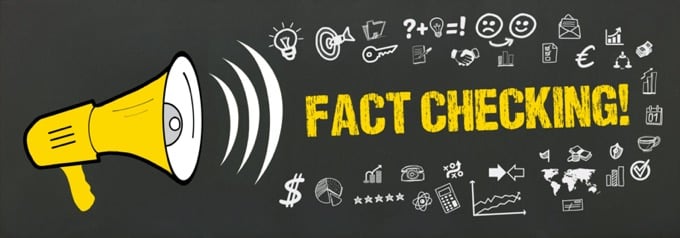
What are the characteristics of the most unbiased news sources? According to EJN:
- Focused on Truth: This means not only obtaining and verifying facts but putting those facts into accurate context.
- Independence: Journalists need to avoid being influenced by sources in any way, including financial, personal power, or otherwise.
- Fair and Impartial: Reporting should present both sides of any issue, and the context of the story should never be left out in order to manipulate the reader’s understanding of the issue.
- Serve Humanity: A commitment to use stories to impact the world in a positive way, rather than causing harm.
- Accountable: Good journalists acknowledge and correct errors or remedy unfair coverage of an issue.
So which news sources are actually unbiased? Which news outlets adhere best to the five core principles of journalism?
1. Associated Press
The AP is consistently featured on nearly every list of unbiased news sources. So it makes sense to list it first here.
The tagline featured at the top of the AP’s main page is “Advancing the power of facts”.
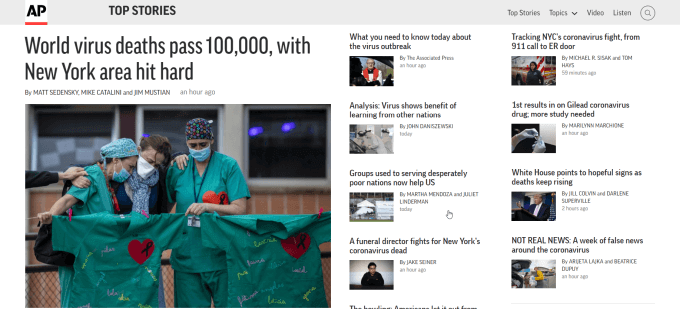
You’ll notice that the language used in the news stories here – even political ones – are very neutral and non-inflammatory.
AP journalists focus on reporting facts citing authoritative sources and corroborating or disproving claims made by sources by providing evidence.
Just this week, you’ll even find one story about all of the “fake news” readers might have seen on social media. The AP then confirmed or debunked those claims using hard facts.

The Top Stories section of the AP website is an excellent place to get the latest news around the world. There is also an interesting Video section with news segments, and Listen section which is the AP Radio broadcasts, updated hourly.
2. PBS News
PBS News is one of the few media outlets that remains immune from major accusations of bias.
Stories here feature both sides of every issue. When you read quotes from politicians or other major figures, you’ll read them with all of the important context provided. Context is a critical part of balanced reporting, and PBS News does it far better than most other media sources.
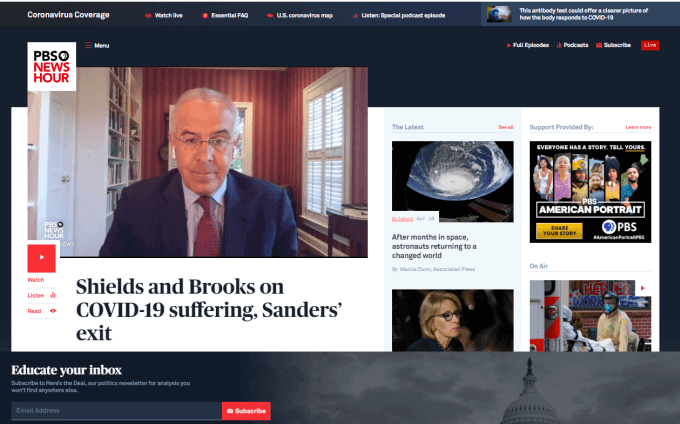
On PBS News you’ll find news categories like Politics, Health, World, Nation, Economy, and much more. It also features a Full Episodes section of all news broadcasts, a Podcasts section of their most popular audio news podcasts, and a Watch live link at the top of the page for watching current, ongoing news broadcasts.
If you need a U.S. focused source of news that you can trust to remain fair and balanced in their reporting, you can’t go wrong with PBS News.
3. NPR
While NPR news is often featured on most lists of balanced news sources, it also has more accusations of being left-leaning than other news sources on this list.
These accusations are usually related to a couple of NPR journalists who are less adept at keeping their political leanings in the background. However most NPR journalists adhere strongly to all of the core principles of journalism, especially accountability.
NPR listeners and readers who reach out to NPR will find that journalists are excellent at responding to criticism. In many cases they will even correct stories or seek to provide better balance on the topics where they hear criticism or complaints from their audience.
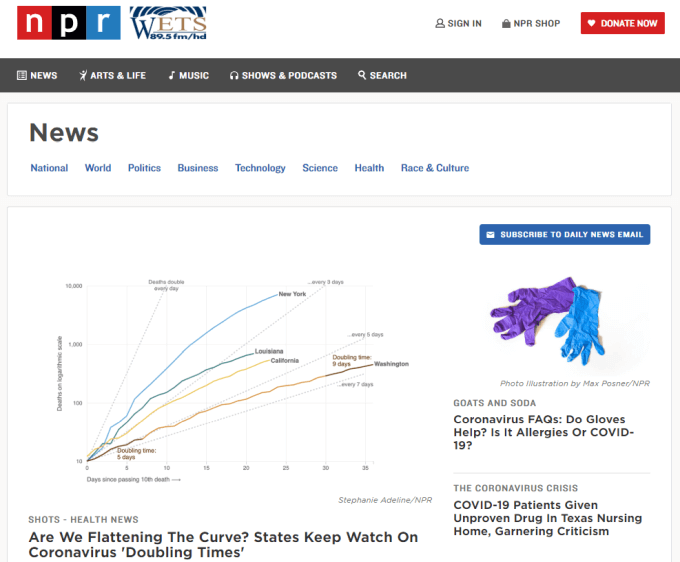
NPR offers a tremendous variety of news content for their audience. You’ll find categories on the site like Politics, Business, Technology, Science, and Race & Culture.
NPR also offers wonderful shows and podcasts, and even a music section focused on helping the NPR audience better appreciate existing, new, and alternative artists and music.
For the most part, when you explore NPR news stories – aside from the occasional left-leaning comments or slant from some of the journalists – for the most part you’ll find balanced and fact-based reporting there.
4. CBS News
According to a 2014 Pew Research Study, 40% of CBS News audience are “left-leaning”, while only 20% are “right-leaning”. While this is often pointed to by political conservatives that CBS News has a left-leaning bias, the truth is that the remaining CBS News audience is center-aligned.
This means that the CBS News audience is much more politically balanced than many other news outlets.

Even when covering very controversial issues, CBS News uses balanced and neutral language in its reporting. Article titles found across the site are matter-of-fact, and reporting includes context as well as opinions from all sides of any debate.
Other major network news outlets like NBC or ABC are often accused by conservatives of featuring inflammatory anti-right headlines, CBS News more often goes unscathed from those accusations.
In fact in the Gallup/Knight Foundation Survey, CBS News was rated far higher by conservatives than CNN, MSNBC, and NBC News. Liberals rated CBS News higher than CNN, USA Today, and even The Washington Post.
5. BBC
Two media-bias rating services, Media Bias/Fact Check and AllSides, both rank BBC News in the center of news reporting.
This means that for independent news readers, BBC news reporting stands as one of the best options. This may be due to the fact that the BBC is based in Britain so remains uninfluenced by U.S. political influence.
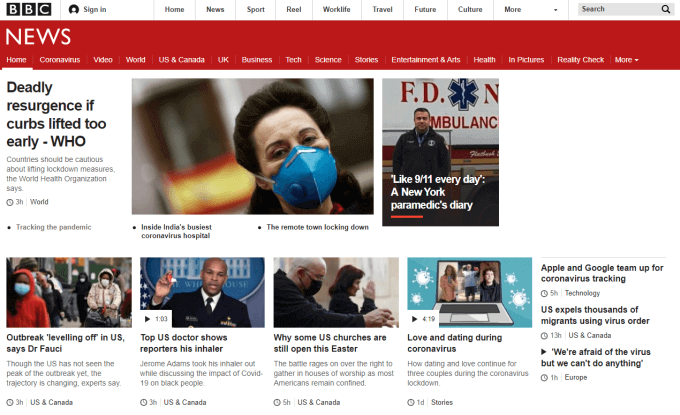
U.S. news coverage on the BBC is surprisingly balanced. Headlines are matter-of-fact and avoid pulling punches against either side of the U.S. political spectrum.
BBC also offers an extremely wide range of news coverage, including world news, business, science, health, and even a “reality check” section that debunks fake news you might have seen on social media or on other news sites.
6. Reuters
Both Media Bias/Fact Check and AllSides report Reuters as even less biased in its reporting than the BBC.
It doesn’t take long browsing the Reuters website to see why this is the case. Article titles there are refreshingly neutral, and journalists there are heavily fact-based in their reporting.
Despite that neutrality, Reuters journalism doesn’t pull any punches. You’ll find U.S based stories there that take a hard line against corruption, unethical politicians on both sides of the aisle, and well-rounded coverage of every issue.

Reuters is an excellent source of news for business and markets, politics, and even technology and lifestyle issues.
There’s also a TV link in the header where you can watch all of Reuters past video news broadcasts. Select the flag in the header to change Reuters coverage to your own region of the world.
7. Christian Science Monitor
One surprising contender on the list of unbiased news sources, given the name, is Christian Science Monitor. Both AllSides and Media Bias/Fact Check list Christian Science Monitor as center-balanced and unbiased.
This news organization has built a reputation over the years as providing extremely fair, in-depth exploration into important issues in the world today. Unlike the more biased media outlets out there, Christian Science Monitor works hard to bring in perspectives from all sides.

You won’t find article titles on this site that seek to malign or unfairly cover one political side or another. Stories dive into the most relevant issues that matter to the audience, providing full context and drawing in multiple sources to corroborate all facts.
The site content is mixed with both text and video news content. You’ll also find podcasts, photos of the week, and even a section devoted to book reviews.




